International Day of Women and Girls in Science (IDWGIS) takes place every year on 11 February. It’s an important day for promoting equitable access for women and girls in the fields of Science, Technology, Engineering and Mathematics (STEM). The United Nations reports that even though tremendous progress has been made towards increasing women’s participation in higher education, they are still under-represented in these fields.
Not being able to see one’s self represented in a community is one of many barriers that could prevent someone from starting or pursuing a particular interest or career. Seeing other people similar to yourself in a field you are interested in can provide encouragement and a sense of belonging and worthiness.
Therefore, this IDWIGS, we want to highlight just some of the outstanding women in STEM who will be sharing their important pharmacological research at the 19th World Congress of Basic and Clinical Pharmacology (WCP2023).
Keynote speakers
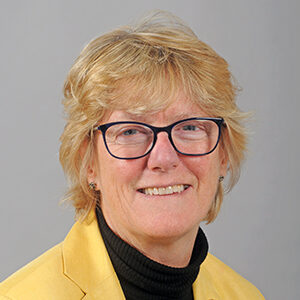
Professor Dame Sally Davies
Dame Sally was appointed as the UK Government’s Special Envoy on Antimicrobial Resistance (AMR) in 2019. Prior to this, she was the Chief Medical Officer for England and Senior Medical Advisor to the UK Government since 2011. She has become a leading figure in global health including serving as a member of the World Health Organisation (WHO) Executive Board from 2014-2016 and as co-convener of the United Nations Interagency Coordination Group (IACG) on Antimicrobial Resistance reporting in 2019.
In the UK’s 2020 New Year Honours, Dame Sally became the second woman (and the first outside the Royal family) to be appointed Dame Grand Cross of the Order of the Bath (GCB) for services to public health and research.
At WCP2023, Dame Sally will be giving a keynote lecture, titled ‘No time to wait: global progress and challenges in tackling Antimicrobial Resistance (AMR)‘
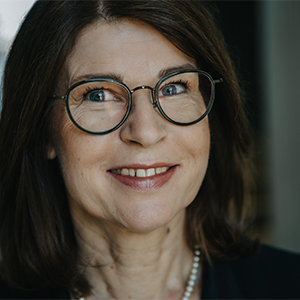
Professor Katrin Amunts
Professor Katrin Amunts is a neuroscientist who is well known for her work in human brain mapping. In order to better understand the organisational principles of the human brain, she and her team have created the cytoarchitectonic Julich-Brain Atlas, as a basis to integrate multi-level and multi-scale brain data into a common reference brain, and use methods of high-performance computing to generate ultra-high resolution human brain models.
Katrin is a Full Professor of Brain Research and Director of the C. and O. Vogt Institute of Brain Research, at the University of Duesseldorf. She is also the Director of the Institute of Neuroscience and Medicine (INM-1), at the Juelich Research Institute. Since 2016, she has been the Scientific Research Director of the European flagship, the Human Brain Project.
Professor Katrin Amunts will be giving a keynote lecture on ‘Neurotransmitter receptors and brain maps‘ at WCP2023.
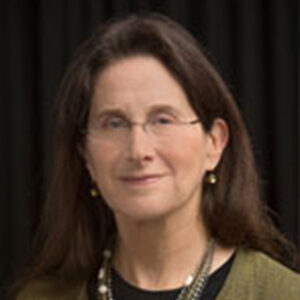
Professor Joan Heller Brown
Distinguished Professor and Chair of the Department of Pharmacology at UC San Diego School of Medicine. She has made fundamental contributions to the understanding of G-protein coupled receptors (GPCRs). She is best known for discovering that stimulation of the muscarinic acetylcholine receptor decreases production of cAMP, a crucial cell messaging molecule, in the heart.
Professor Brown served as Editor-in-Chief of the Molecular Pharmacology journal from 2000 to 2003 and has served on the editorial boards of numerous other scientific journals. She received the Distinguished Scientists Award from the American Heart Association in 2020. She is a fellow of both the American Heart Association and the International Society for Heart Research. In 2017 the American Society for Pharmacology and Experimental Therapeutics (ASPET) awarded her the Otto Krayer Award in Pharmacology.
You can see Professor Joan Heller Brown’s keynote lecture ‘Through the Looking Glass: G-proteins and their lessons for cell growth, survival and inflammation‘ at WCP2023.
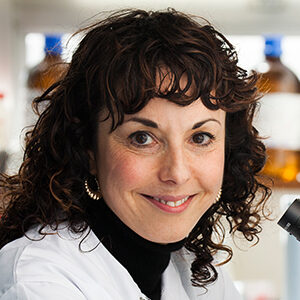
Professor Sarah Tabrizi
Professor Tabrizi is Director of the University College London (UCL) Huntington’s Disease Centre, Joint Head of the Research Department of Neurodegenerative Disease at the UCL Queen Square Institute of Neurology, a Principal Investigator at the UK Dementia Research Institute, and Consultant Neurologist at the National Hospital for Neurology and Neurosurgery.
She leads a basic bench science programme focussing on basic cellular mechanisms of neurodegeneration in Huntington’s Disease (HD) that can be harnessed for therapeutics. She also leads a large translational research programme that is working towards finding effective disease-modifying treatments. She was also the Global Clinical Principal Investigator on the world’s first gene targeting study for HD using anti-sense oligonucleotide therapy.
Professor Sarah Tabrizi will present her keynote lecture ‘Gene targeting therapies for Huntington’s disease: What does the future hold for neurodegenerative disorders?‘ at WCP2023.
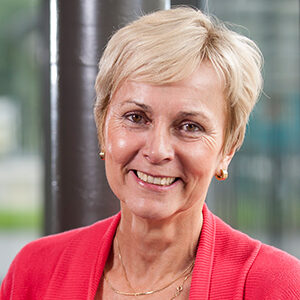
Professor Christine Mummery
Professor Mummery is Professor of Developmental Biology and Head of the hiPSC&OoC Hotel facility at the Leiden University Medical Centre (LUMC). In 2008, she became Chair of Developmental Biology at LUMC and was Department Head from 2009-2020. She co-founded Pluriomics bv (now Ncardia) in 2010, the European Organ on Chip Society (EUROoCS) in 2018, and Human Disease Modelling Technologies (hDMT).
Her current research concerns modelling cardiovascular diseases using stem cells from patients and developing organ-on-chip models of multiple organs for safety pharmacology and potential disease and drug targets.
Professor Mummary is a member of the Royal Netherlands Academy of Science (KNAW) and is President of the International Society of Stem Cell Research (ISSCR). She was Founding Editor of the ISSCR journal Stem Cell Reports. Her ambitions include promoting women and minorities in STEM.
At WCP2023, Professor Christine Mummery will present her keynote lecture which explores how ‘Human pluripotent stem cells come of age in modelling cardiovascular diseases and toxicity‘.
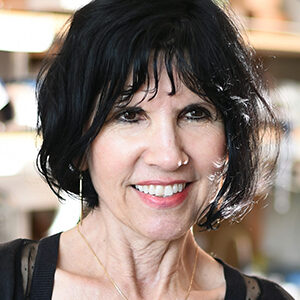
Professor Kathy Giacomini
Professor Kathleen (Kathy) Giacomini is a professor and Dean of the School of Pharmacy at the University of California, San Francisco (UCSF). She is a leader in the field of membrane transporters with a focus on genetic polymorphisms.
Professor Giacomini cloned, characterised and discovered endogenous roles of the human xenobiotic transporter, OCT1 (SLC22A1), recently de-orphaned SLC22A24, an anion exchanger that preferentially transports steroid conjugates, and performed genomewide association studies for response to the anti-diabetic drug, metformin and the hypouricemic agent, allopurinol. She co-founded the International Transporter Consortium, which has published highly impactful papers informing regulatory policy. She is the Co-Principal Investigator of the UCSF-Stanford Center of Excellence in Regulatory Sciences and Innovation and Founder and President of the Pharmacogenomics Global Research Network. She has received numerous awards and is an elected member of the National Academy of Medicine.
Don’t miss Professor Kathy Giacomini’s WCP2023 keynote lecture on ‘Transporters in drug development: From targets through regulation‘.
Find out more about all our keynote speakers.
You may also be interested in:
- Register now – prices fixed at early bird rates until 2 July 2023. Save 15%with group booking offer.
- View the programme
- Book your accommodation
- Plan your travel
- Explore Scotland, discover Glagow
- Register for satellite meetings
- Find out about exhibition and sponsorship opportunities
Register now – ticket prices fixed at early bird rates. Save 15% with group booking discount.

